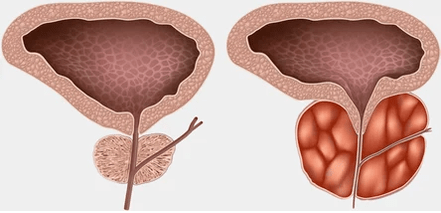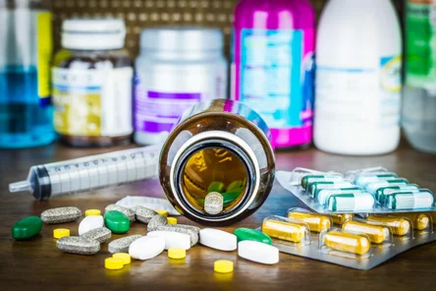
In the treatment of prostatis, drug therapy is most often prescribed.During its passage, the patient must take a drug different categories.Some are designed to remove symptoms that cause discomfort, while others intentionally influence the affected gland, eliminating the most important cause.At the same time, medications differ in terms of exposure, because some are designed to remove acute, while others are against chronic.Let's look at the most popular medications used in the treatment of prostate glands.
Types of drugs for prostatitis
All medicines prescribed by the doctor who attended can be divided into several categories using the use:
- Pills and capsules- They are adopted orally absorbing the body, in the case of capsules, absorption occurs much faster, because all components fall into the destination after a short period of time after the melee membrane dissolution.
- Injections- It can also be medicines for liquid and powder, which is subsequently diluted in the work fluid, usually painkillers, are applied intramuscularly or intravenously, and the effect can be applied after a few minutes.
- Rectal suppository (candles)- They have anticcacing, antibacterial and analgesic effects, they were introduced to the patient in the rectum when it is on its side, and about half an hour should be performed in this position so that the drug is completely dissolved.
- Implantation- A group of drugs, which has a maximum positive effect in the case of direct recognition on the affected gland, the method is used in the hospital, because the introduction is carried out through the urethra.
- Microcliss- As a rule, drugs, such as plant decections, include this, they are unable to replace drug therapy, but can become a good remedication of pain or prevention.

It is worth noting that some types of drugs can be sold in several forms at once, for example, pills and suppositions, so that the present doctor must necessarily indicate that feature.
The most popular preparations for prostatitis treatment
The treatment of prostatitis with medicines is a quite complicated procedure that requires a doctor to select the correct choice that will not only alleviate pain and eliminate other symptoms with the events, but will also help remove the root causes of the disease.The disease itself can also have a different origin, manifesto in acute or chronic forms and deliver a variety of uncomfortable spectrum for the patient, limiting it as in natural issues, so bring to complete infertility.
Classic tablets, intramuscular injections and candles for rectal application can be used in the treatment of prostatitis.The choice of drug directly depends on the need for the urgency of its components to the affected organ.
Additional funds
Prostatitis treatment is not limited to a list of several medications.Specialists can also use other types of drugs different categories.
Fluoroquinoloni
Forchinolone - Antibacterial medications used in the treatment of tuberculous origin of prostatitis.These funds are used comprehensively, and the patient can be prescribed a course consisting of four or more medications at once.
Cefalosporini
Cefalosporins are antimicrobial remedies designed to combat specific types of bacteria.
Such medications can also be a wide and directional spectrum of action, and the need to use this or that agent directly depends on the form of disease and the cause of its phenomenon.
Macrolides
Macrolides in prostatitis treatment are rarely used, because they are intended to combat individual types of bacteria, such as mycoplasm and chlamydia.By the way, the disease like chlamydi often accompanies prostatitis, so doctors prescribe several tests at once to identify prostate problems in the early stages.
In acute prostatitis events, the doctor present can rewrite several drugs different categories at once.This approach allows you to fight effectively as symptoms and directly the disease.
Analgesics
In the large majority of the analgesics, it is prescribed if there is an acute pain syndrome, which is an integral satellite chronic, but more often the difficult form of prostatitis.Prime medication relating to this group outside the drug therapy framework that aims to remove the disease, is not strictly not recommended, because the body quickly gets used to them and to achieve a dose, which can negatively affect liver and kidneys.The course of analgesics is prescribed individually.
Alpha-blockers and miles
The main goal of these drug groups is to release tensions from exacerbated bladder muscles, urethral channels, as well as reducing pressure in the pelvic area.This means help to resolve the feeling of discomfort and normalization of the urination process.
Immunomodulators
Such medications basically contain natural components, in the case of prostatitis - extracts based on the tissue of the cattle prostate.Regardless of the medicine, everyone has a general principle of action, allowing:
- slow down the flow of inflammatory processes;
- Increase the tone of smooth muscles and the bladder walls;
- minimize the possibility of blood clots;
- improve blood circulation in prostate gland;
- Reduce the amount of prostate.
Immunomodulators can be used for a series of diseases, including chronic prostatitis, acute non-effective prostatitis, prostate adenoma.
In addition, such tools are actively used for preventive purposes, which helps avoid the occurrence of illness or its relapses.
Vitamins and biological additives
So it belongs to these categories can reduce the level inflammation, improve the outflow of liquid and mitigate the stagnite phenomena.The need for such medicines is also due to insufficient intake of useful nutrients in the body, especially during the course of antibiotics.
Prostatitis is a rather complicated disease, whose treatment should be made with a real specialist.An independent choice of drugs is not strictly not recommended, because with this approach there is a large proportion of complications in the form of infertility, infertility, and even risk of cancer.The use of prostatitis funds without a doctor consultation can lead to disease dismissal without surgical intervention.In addition, independent treatment is complicated in the impossibility of precise diagnosis, as this requires appropriate equipment and knowledge.
It is also necessary to remember that most medications used in the treatment of prostatitis quite toxic, and some types are simply incompatible.If you feel pelvic pain during urination, defection or ejaculation, often go to the toilet and you can't discharge the bladder normally, do not risk - consult a doctor.So, you won't prevent not only a negative course of the disease, but you can avoid the development of its chronic shape that you will have to live with your whole life.In addition, your sexual function will not be damaged and your timely treatments can have completely normal and healthy offspring.


































